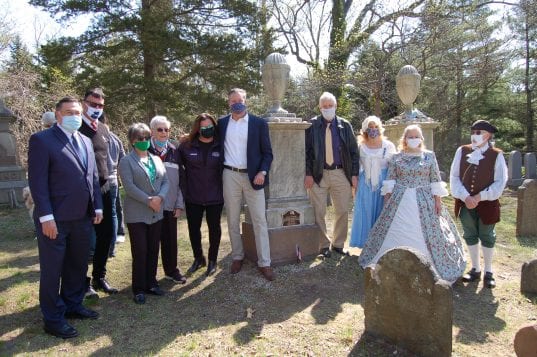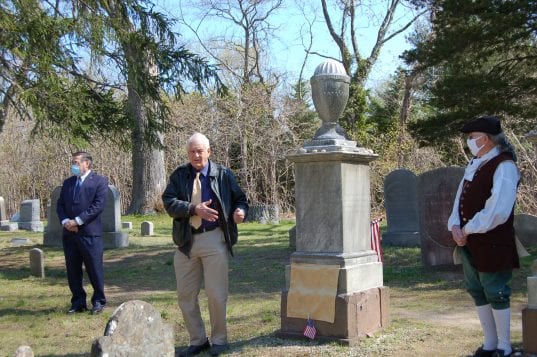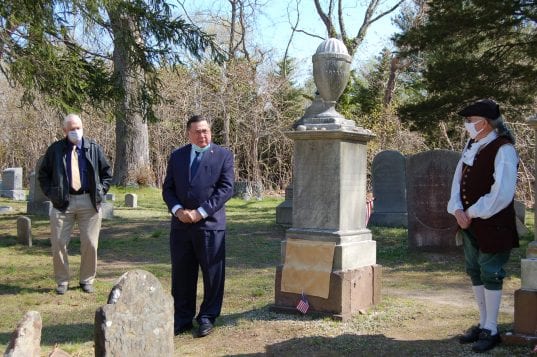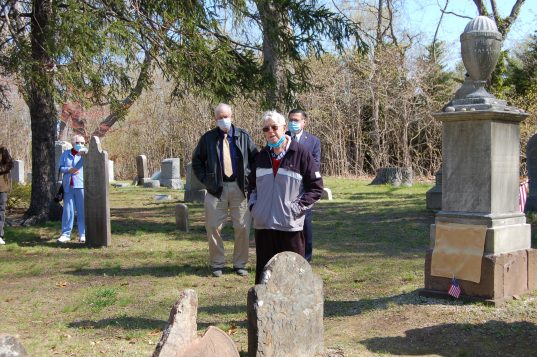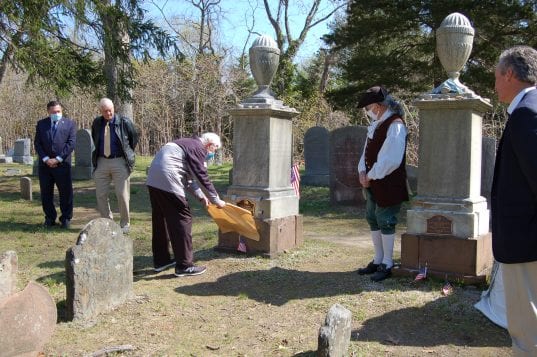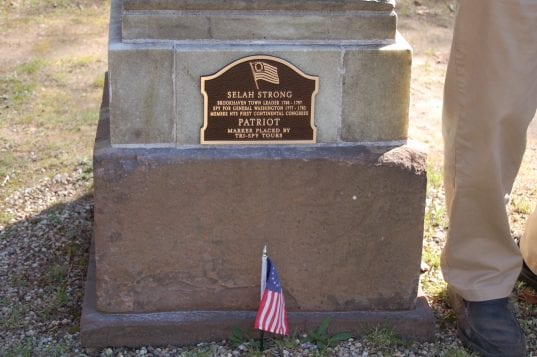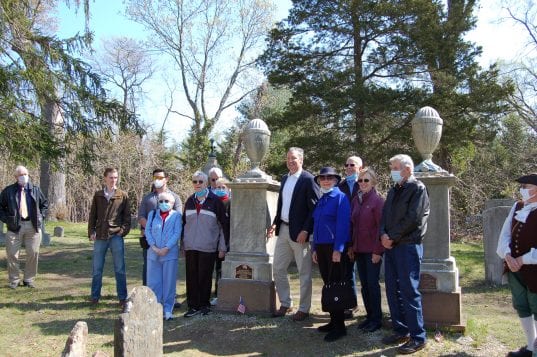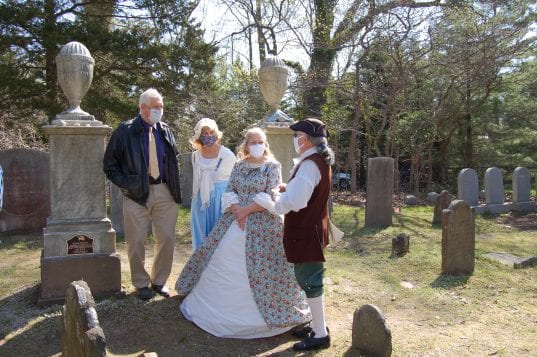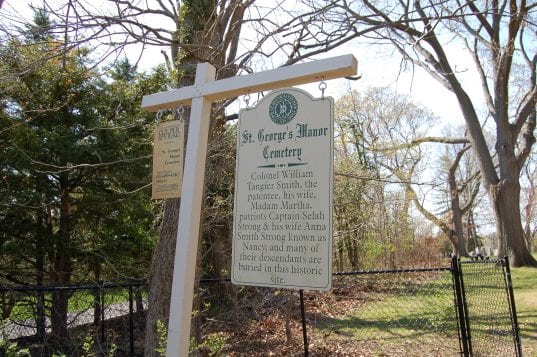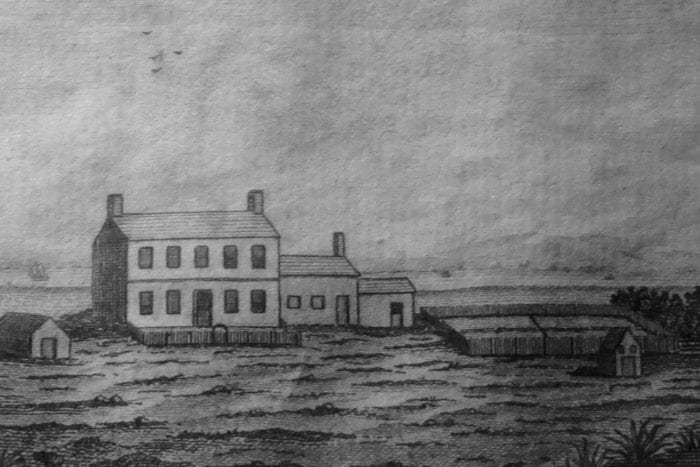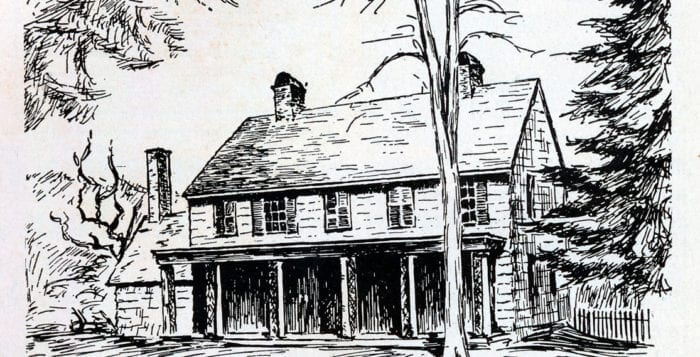By Heidi Sutton
This past Saturday, members of the community gathered at St. George’s Manor Cemetery in Setauket to pay tribute to Judge Selah Strong with the unveiling of a commemorative graveside plaque. Margo Arceri, owner of Tri-Spy Tours, dedicated the bronze marker which honors the judge’s contributions to the local community, 205 years after his death.
“Strong was one of the first patriots in the community. He was best friends with Culper Spy Caleb Brewster … During the Battle of Long Island, he was arrested by the British for assisting the Continental Army. After the war, he had a long and illustrious career in public service. The Strong family wanted him to be recognized for his efforts during the Revolutionary War and after. It was a great honor to place the marker for them,” said Arceri after the ceremony. “This is an important moment in our community’s history and for the Strong family.”
The event was attended by representatives of the Three Village Historical Society including President Steve Healy, Director of Education Donna Smith and historian Beverly C. Tyler; members of the Anna Smith Strong chapter of the National Society of the Daughters of the American Revolution; and several descendants of Selah Strong. Brookhaven Town Supervisor Ed Romaine, New York State Assemblyman Steve Englebright, and Brookhaven Town Historian Barbara M. Russell were also in attendance.
Selah Strong is buried in a family plot next to his first wife, Anna Smith Strong, the only female member of George Washington’s Culper Spy Ring, known for her famed clothesline.
“It’s always been a bit of a shame that not too many people payed attention to Selah because they were so interested in Anna and her story, but actually he did an awful lot,” said John (Jack) Temple Strong Jr., Selah Strong’s great-great-great grandson, who had the honor of unveiling the plaque.
Supervisor Romaine agreed. “Born on Christmas Day, 1737, died on the Fourth of July, 1815, he packed into his life things … we see of a man who was dedicated to his community, someone that at the tender age of 26 was elected Town Trustee and would wind up spending 35 years in office, most of them, certainly from 1780 on, as President of the Trustees, which is the equivalent of Supervisor,” he said.
Selah Strong also served as Suffolk County Treasurer, judge for the Court of Common Pleas, and was a New York State Senator for four years. “This is a man who served his community … I am here to pay my respects to someone that paved the way because as we look around today, a lot of what we have over the last 200 years would not be here if not for men of this caliber,” added Supervisor Romaine.
“When we think about patriotism we think about Selah Strong, Anna Smith Strong and the personal sacrifice, the amount of risks that they took for their country — true patriots,” said Raymond Brewster Strong III, Selah Strong’s 6th generation grandson who made the trip from Houston, Texas, to attend the ceremony. “[George] Washington’s motto was ‘deeds, not words’ and when you think about Selah Strong’s [accomplishments], those are true deeds, not words.”
“The Strong family continues as tradition bearers, and Tri-Spy Tours and the Three Village Historical Society are also important parts of passing to the next generation a sense of place and a sense of continuum,” said Assemblyman Englebright. “I am just honored to be here to bear witness to this wonderful occasion. This is altogether a respectful moment that should be remembered, as Selah Strong should be remembered.”
*Editors note — St. George’s Manor Cemetery is a private cemetery still owned by the Strong family.
All photos by Heidi Sutton

